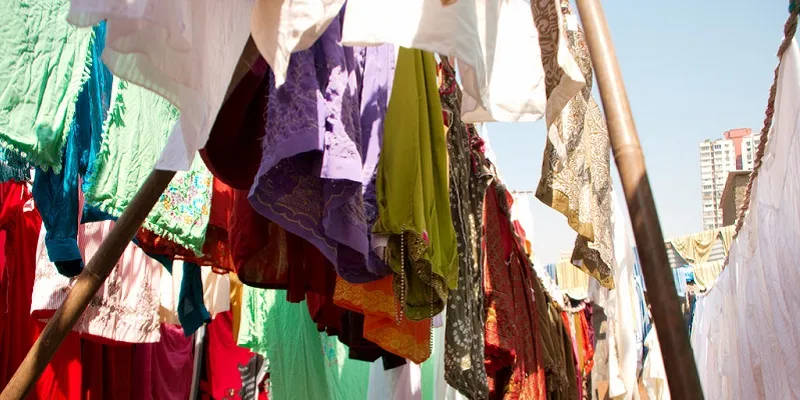Digital Dhobi will clean dirty linen of college hostels
Damaged clothes, misplaced pants, or simply something that isn’t laundered right. For 21-year MBA student Karan M, getting his shirt perfectly laundered for his Monday morning class was a recurring pain.
Twenty-one-year old Ashutosh Mishra, a student at Manipal University, could commiserate, as he faced the same problem. Often, his clothes were damaged from careless washing, or were misplaced altogether.
After speaking to a few other college students he realised that the problem was universal. He then came up with the idea of Digital Dhobi, an online laundry platform that aims to upgrade the service standard of the local unorganised market.

Setting up the team
Digital Dhobi has set its sights on capturing the student market, by providing its services to all colleges and universities in different cities. The focus is enterprise businesses. While Ashutosh kickstarted the idea with a few friends, he found it difficult to keep the team together due to various reasons.
However, one friend remained in the team – Snigdha Mishra, another 21-year old college student. Additionally, Ashutosh roped in 23-year old Chandan Singh, his senior in college. With Chandan’s help the team secured a meeting and tied up with Manipal University. The tie-up was crucial in staving off threats from the strong laundry union in the city, which was wary of disruptive competition.

Breaking the market
The main objective to start the operations in Manipal was to provide services to Manipal University hostels. The team also offers regular deals, discounts, and cashbacks.
They claim to have the capacity to give up to 50 percent cashback on dry clean services and 30 percent on other regular services. It works on a revenue-sharing model with the local laundry.
The workings and future
Digital Dhobi decides the total number of tie-ups based on area size, market, college-student quantity, quality of the service, the capacity to delivery and timeliness of a service. The rates are generally mutually decided, with pick-up, delivery, tagging, packaging services provided by Digital Dhobi. The local laundry is responsible for only washing, iron/dry clean and gets a 25-percent commission.
On their immediate plans, Chandan says, “We are in talks with the colleges in Pune and couple of other cities. We are planning to get the contracts from the colleges in Pune to expand there after Manipal. Our plan is to expand our service in all the colleges and improve the laundry service there. In next 1.5-2 years we are expecting and targeting a turnover of more than Rs 1.5 crore.”
Market
Last year, there were multiple investments in this space, but it failed to continue this year. Unlike last year, investors have lost confidence in on-demand startups. As a result, several startups (including poster boys like Mywash and Doormint) either acquihired or shut shop.
In November 2015, Wassup acquired Chamak for an undisclosed amount in an all-equity deal. Delhi-based Tooler shut shop early this year, while Hyderabad-based Ezeewash got acquihired in a humble deal by Wassup. Earlier in February, Housejoy acquihired on-demand laundry startup Mywash for an undisclosed amount. Recently, Mumbai-based Doormint ceased operations.
The estimated size of the laundry market is Rs 2,20,000 crore, with the unorganised market (which includes dhobis, maid servants, and mom-and-pop stores) valued at Rs. 5,000 crore. The sector is fragmented, with 7,67,000 establishments, 98 percent of which are micro-sized laundries with fewer than 10 workers, according to a report by Euromonitor International.
Praveen Sinha, Founder, Jabong, who has invested in online laundry startup Wassup, says, “The organised segment comprises 2-3 percent of the entire laundry market. The online part will be close to 25 percent of the organised segment, with significant growth potential.”







